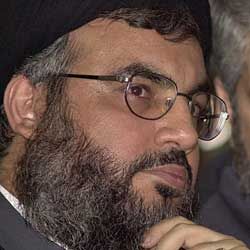
Hezbollah Is More Sophisticated Than Expected
The war between Israel and Hezbollah has now lasted 23 days. Israel, to this point, despite undertaking over 5,000 bombing sorties and sending thousands of troops onto the ground in Lebanon, has been unable to even slow down Hezbollah’s relentless rocket attacks.
One of the biggest surprises of this war has been the sophistication of Hezbollah’s offensive. In addition to its canny media campaign, which has done much to swing international opinion against Israel and into its own favor, Hezbollah has employed a very effective military strategy—digging in to well-fortified, well-stocked bunkers that are effectively resistant to Israeli air assaults—and is using more-advanced weaponry than Israel was aware it possessed.
A few examples tell the story. Israel was surprised to learn on July 14, when an Israeli missile boat off the Lebanese coast was almost sunk, that Hezbollah possessed a radar-guided c-802 anti-ship missile that Iran had acquired from China. Commanders in Israel’s Armored Corps say Hezbollah has been using Russian anti-tank guided missiles; they have recovered shells or launchers of two anti-tank systems, one of which has a greater range than that of Israel’s anti-tank weapons. On July 28, five Hezbollah rockets reached the town of Afula, about seven miles south of Nazareth—deeper into Israeli territory than any previous attacks; the Israeli Defense Force claims they were Fajr-5 rockets, which have a 200-pound warhead (double that of the Fajr-3 rockets that are hitting Haifa, further north) and a 45-mile range. On top of all these has been the sheer volume of rockets Hezbollah has launched (last week alone it fired over 1,500; this week has been comparable). Apparently they have enough at their disposal to fire them almost indiscriminately (as Daniel Henninger wrote last week, they’re using “unguided artillery Katyusha rockets like bullets”), with no signs of letting up, and the distinct possibility that even more powerful armaments wait in store.
In addition to demonstrating the strength of Hezbollah, these facts demonstrate an astounding failure of Israeli intelligence. Again and again, Israel has been caught off guard by Hezbollah’s capabilities. “Such failures are surprising and discouraging, given that Israel has been tracking and fighting Hezbollah for nearly a quarter-century,” wrote Bret Stephens in OpinionJournal.
Israeli efforts to characterize their offensive to this point as a victory are, sadly, belied by the facts. In reality, Israel is up against what intelligence firm Stratfor says could be “the most resilient and well-motivated opposition force in its history.”
